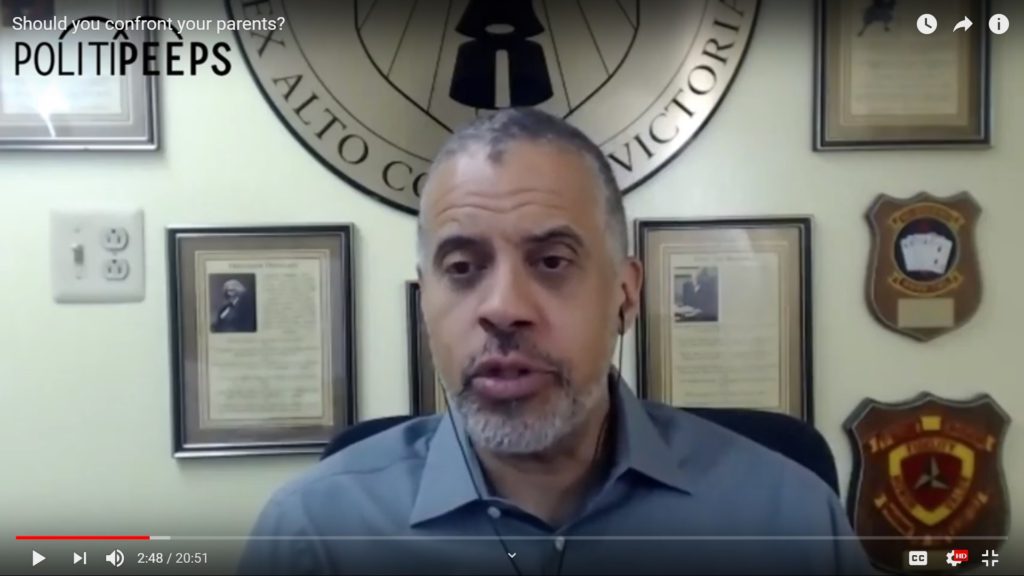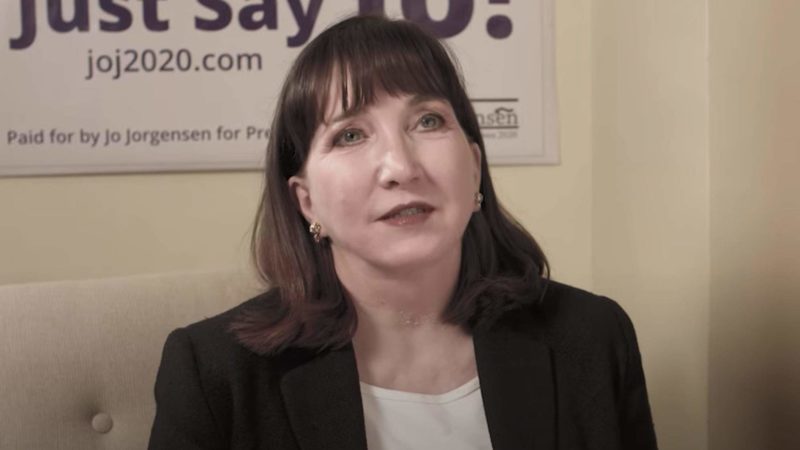Should You Confront Your Parents?

Several years ago, Larry Sharpe and his wife were considering moving out of New York State, so they didn’t repaint the interior of their home. Rather than escaping the issues that he found to be profound in his state, he chose instead to run for governor, stayed, and eventually had their house painted.
As anyone who has done home repairs knows, most projects are bigger than they seem, and every house hides lots of insufficiencies. Like a house, people can be insufficient.
Grown-Ups Haunted by the Past

To a child, parents are everything, and it seems nearly universal that when we grow up we feel our parents have let us down in some important way. No matter how good they were there is always something, and many people have trouble moving on as adults.
Hopefully, we share a mutual love and respect with our parents. But how should we behave when we feel that urge to confront them about their past weaknesses, and the issues that continue to cause us pain?
Larry Sharpe has a few ideas that may help. He was adopted and had some difficult times with his parents in an environment that included violence, infidelity, and drug abuse. He as built a life around providing valuable services to others and now has decades of experience with leadership, training, and business consulting.
When dealing with people (especially parents) who haven’t lived up to our expectations, Larry suggests we remember that parents are human. Every single parent makes mistakes. Nobody is perfect.
When, and How to Act on Your Feelings

Many problems we have with our parents are small enough that they can be left in the past, but sometimes, a problem is persistent and always crops up in your mind. How can we know if we need to talk to someone about it? Larry suggests we ask two questions first: Why does it matter, and if it matters, what purpose is served by bringing it up?
Your parents can’t fix your problems for you, even if they are somehow at fault. According to Larry, talking to your parents about the past should be done when you are ready to forgive them and move on. If your parents were capable of fixing your problems, they’d have done better when you were younger and it wouldn’t be an issue now.If your parents weren’t abusive, Larry suggests that you ask yourself, “what value you will gain in bringing up past mistakes?” We all want to find happiness in life, and sometimes we think someone else is responsible for our happiness. Sometimes we think that is our parents. But if you’re angry you need to walk away and fix yourself, first. Take on the responsibility of being an adult and claim your power.
Fix Yourself First, Then Worry About Your Parents

There is enormous power in forgiveness. Sometimes you need to express yourself in order to be able to forgive. If you want to talk about the past with your parents and your goal is forgiveness, that is healthy! Tell them how you feel. Don’t expect them to agree or change. Don’t confront them with facts or excuses. Just tell them how you feel. If they admit to being in the wrong and express remorse you can forgive them and get on with your life. If they disagree or want to fight, just tell them you wanted to share your feelings and thank them for listening. End the conversation and move forward with your life.
The Power of Forgiveness
If you are the only angry person, the only hurting person, then the problem is you.
Larry Sharpe
Fixing your life isn’t about proving who is right or wrong, it’s about finding solutions and learning from the past so you can move forward without repeating old mistakes.
Forgiveness makes you feel better. Tell your parents how you feel, forgive them and move on. It can be very hard. But the alternative is to feel horrible and distracted for the rest of your life and waste huge amounts of time and energy dwelling on the past and avoiding the present. The choice, and the responsibility is yours.
Combating Abusive Relationships

You might find as you get older that similarities with your parents will emerge. The good similarities should be encouraged, but the bad influences that may appear should be minimized.
Our parents are our image of how relationships should be. We often mirror them when we grow up. If you were abused in the past, you may equate abuse with love and find yourself in relationships that repeat the past.
If you don’t actively try to not repeat your parent’s mistakes, Larry says that you will repeat them and become your parents.
Decide how you’re going to be and make the changes necessary. Open communication, admission of failures, plans for moving forward.
Sometimes this means you should talk to your parents, but usually this is something you can handle on your own with your spouse and trusted friends.
Don’t judge yourself. Accept who you are and what you are, and take steps to protect yourself from those parts of yourself you find insufficient. Be open, transparent, and have clean lines of communication with the people who matter most in your life. Focus on moving your life forward and only look to the past to for inspiration.
Be smart. Avoid trouble before it can happen. Take responsibility and take your power back.
If you were abused by partners or parents in the past and think you may be in an abusive relationship, the best way forward is to assume you are.
If you think ‘maybe’, it is.
Larry Sharpe
When something happens you think is abusive, ask your partner about their intent. If it only happens once and you talk to them and resolve things and you still love them and want to be with them, forgive and move on. If it happens a second time, however, the time for talking is done. It’s way too easy to fall back into victim-hood if you were ever once a victim. Go talk to a friend, a therapist, or someone you trust and talk it out with them, and get out.
Watch the full interview with Larry Sharpe to learn more.






Facebook Comments